
We recently upgraded the skins and flesh hoops on a pair of Pearl Elite bongos for a customer. I mounted 1mm steer on the 7″ macho and 1.6mm steer on the 9″ hembra.

We recently upgraded the skins and flesh hoops on a pair of Pearl Elite bongos for a customer. I mounted 1mm steer on the 7″ macho and 1.6mm steer on the 9″ hembra.

We have been busy crafting PreMounted™ heads for modern Gon Bops congas.
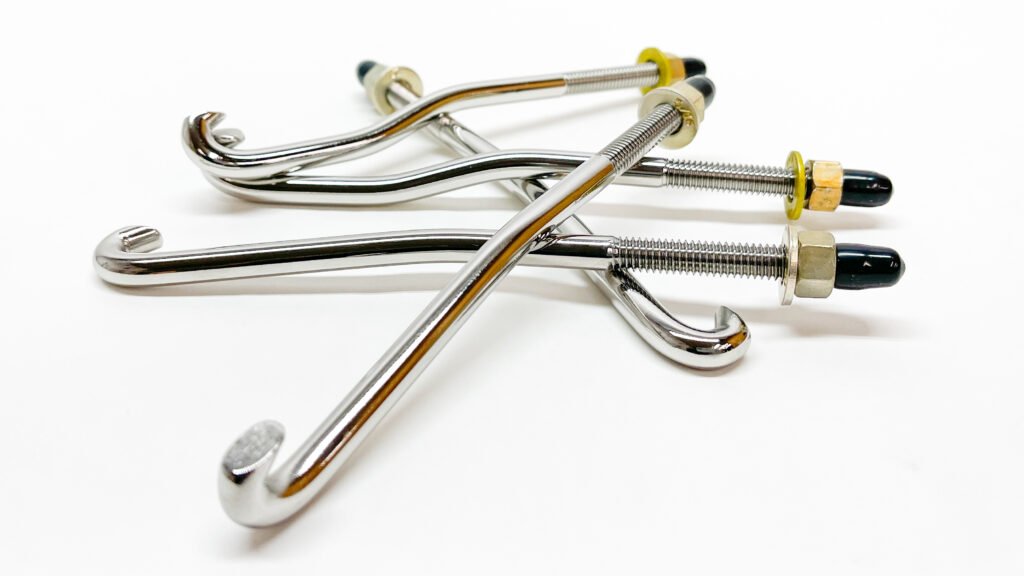
Need tuning lugs? Made of 5/16″ 304 stainless steel, these custom formed tuning lugs are cold bent into a variety of shapes and lengths ranging from 4″ to 7-1/4″. We can match most conga and bongo lugs. Each one includes high strength cadmium coated washer and 1/2″ nut, as well as a black rubber thread cap.
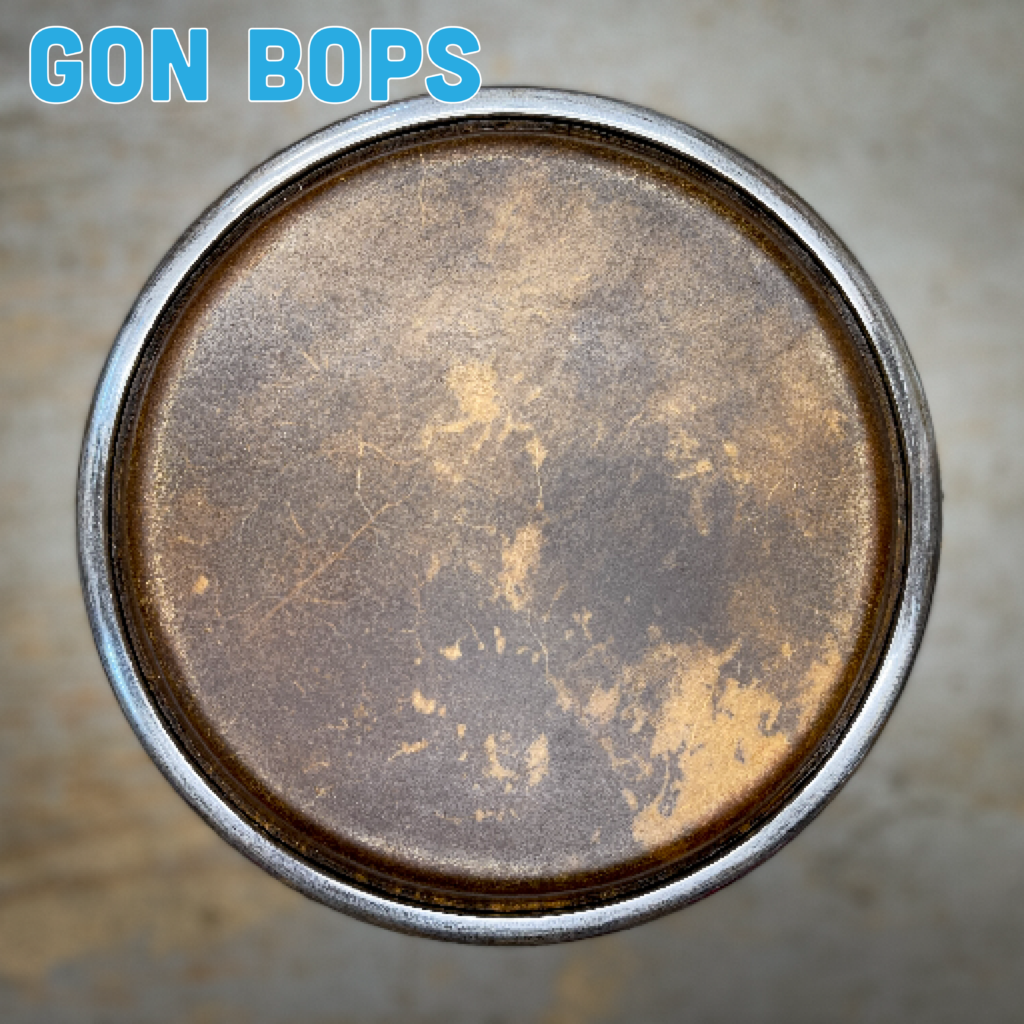
PreMounted™ heads for modern Gon Bops congas are now available.

Take advantage of some great deals on PreMounted conga heads!

I mounted a beautiful 2mm thick Black Gold™ skin on an 11.75″ conga today. It’s Brazilian buffalo, and produces warm tones and rich bass. It also has medium action and a slightly dimpled supple playing surface. Black Gold™ is available as PreMounted™ heads or flat skins.
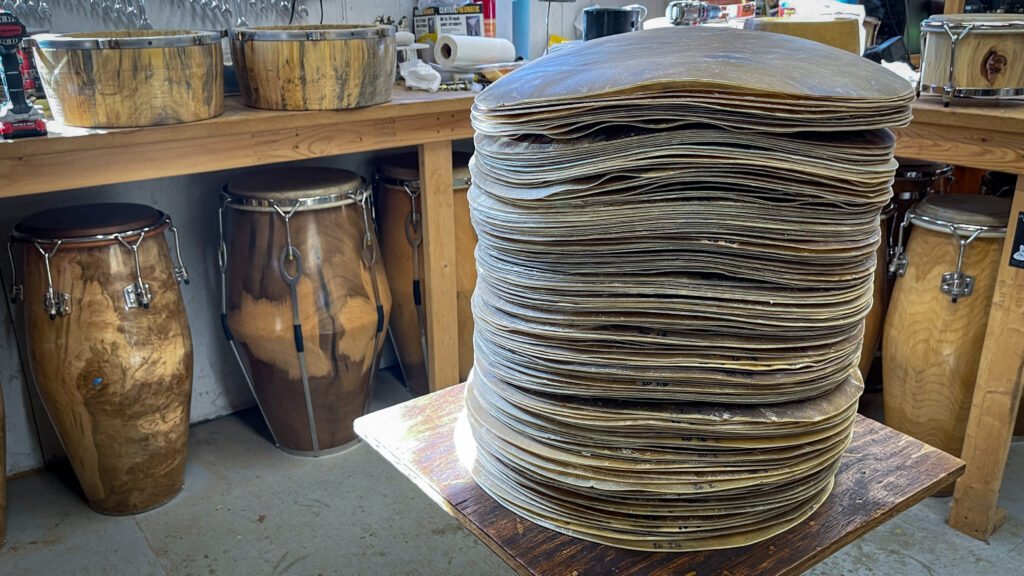
This is a fraction of the Middle Eastern Steer we received last week. It produces a warm and classic sound with crisp slaps, round open tones, rich bass and controlled overtones. It has medium action, very smooth and somewhat supple playing surface, and is ideal for live and studio applications. It is the most versatile skin type we offer, and our shop favorite! Available as flat skins and PreMounted heads in natural, amber and chocolate colors.
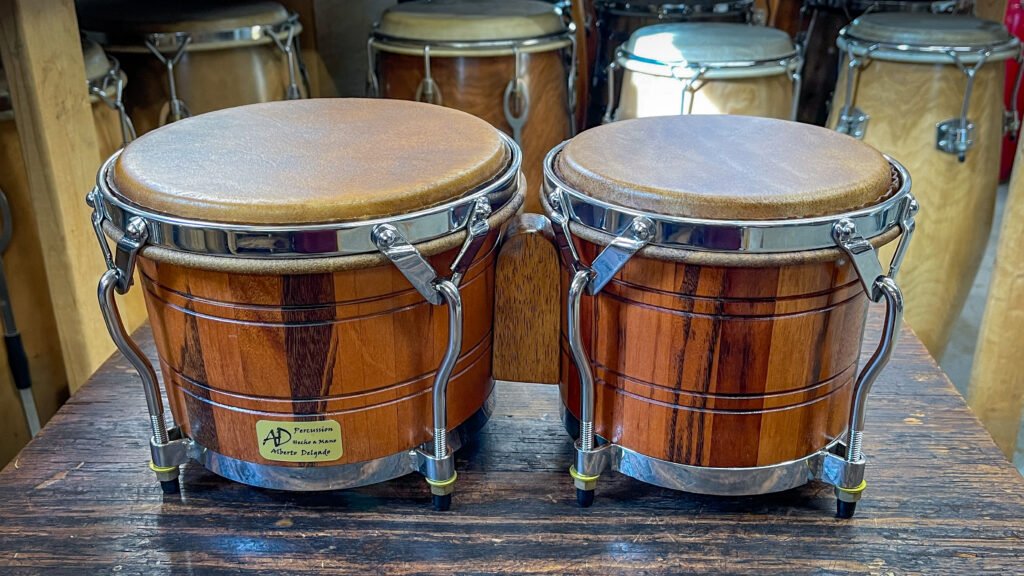
We recently upgraded the flesh hoops, skins and tuning lugs on a customer’s AD Percussion bongos. Yes, those are LP crowns. I mounted Middle Eastern Steer– 1mm for the macho, 1.6mm for the hembra. The tuning lugs are 5/16 custom formed 304 stainless steel.


I caught Manito turning a solid conga shell today.
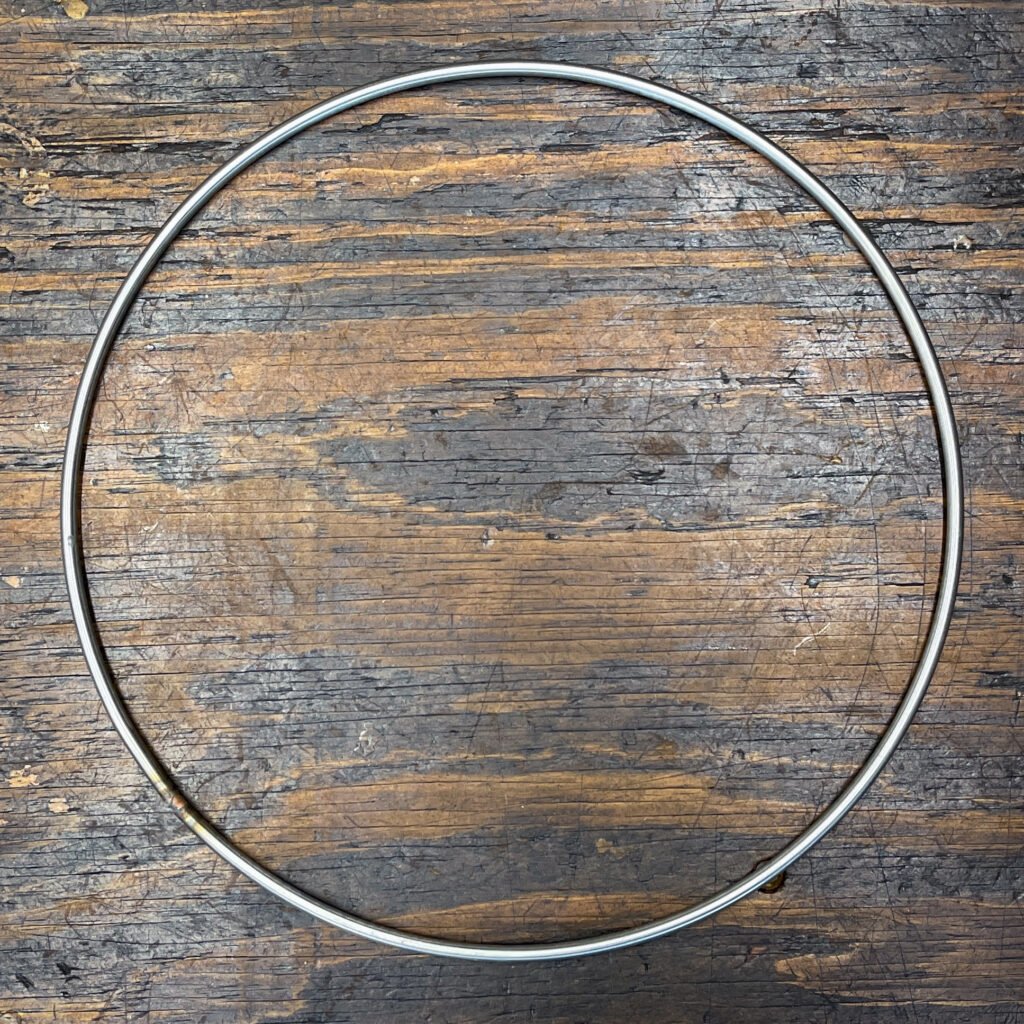
Our Flesh Hoops a.k.a. “skin hoops” are fabricated from either 3/16″ round, 1/4″ round or 3/16″ square 304 stainless steel, and TiG welded for added strength. They are available in outside diameters from 7″ to 17-7/8″ in 1/8″ increments, and will never rust.